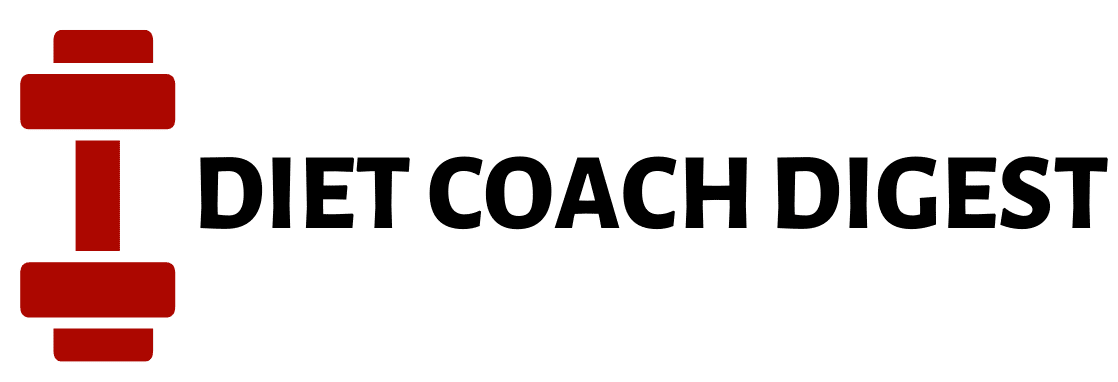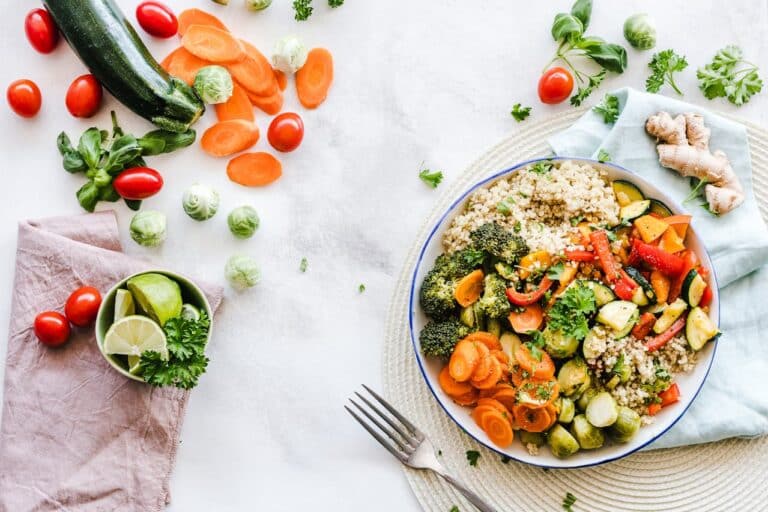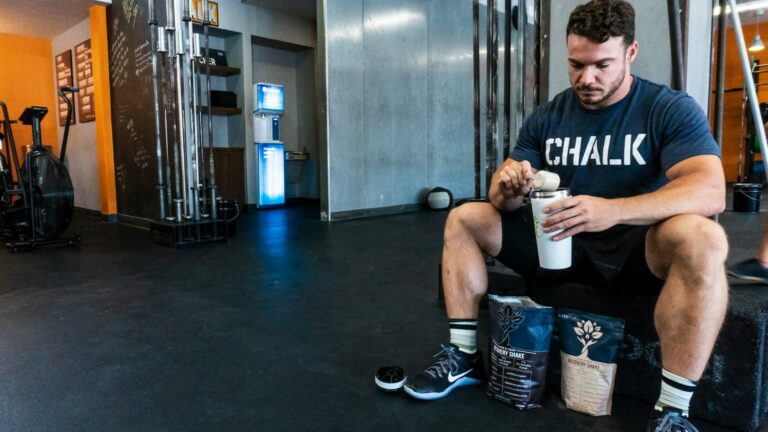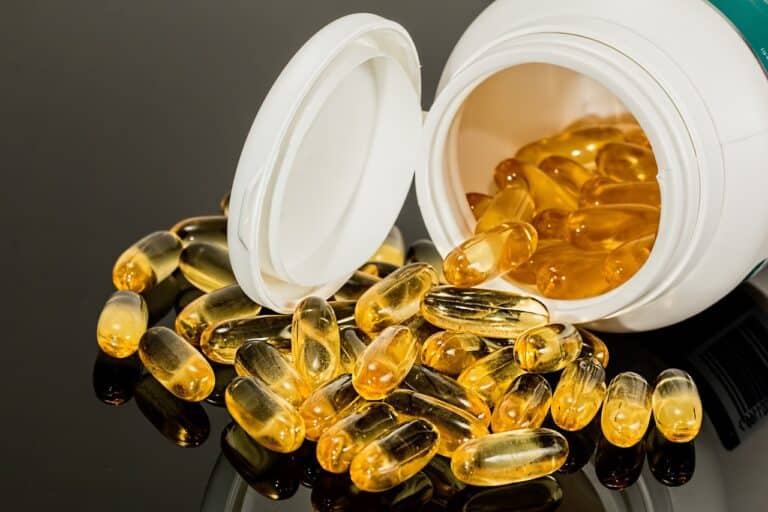TOP Protein Sources: Optimizing Muscle Growth with the Right Food Choices
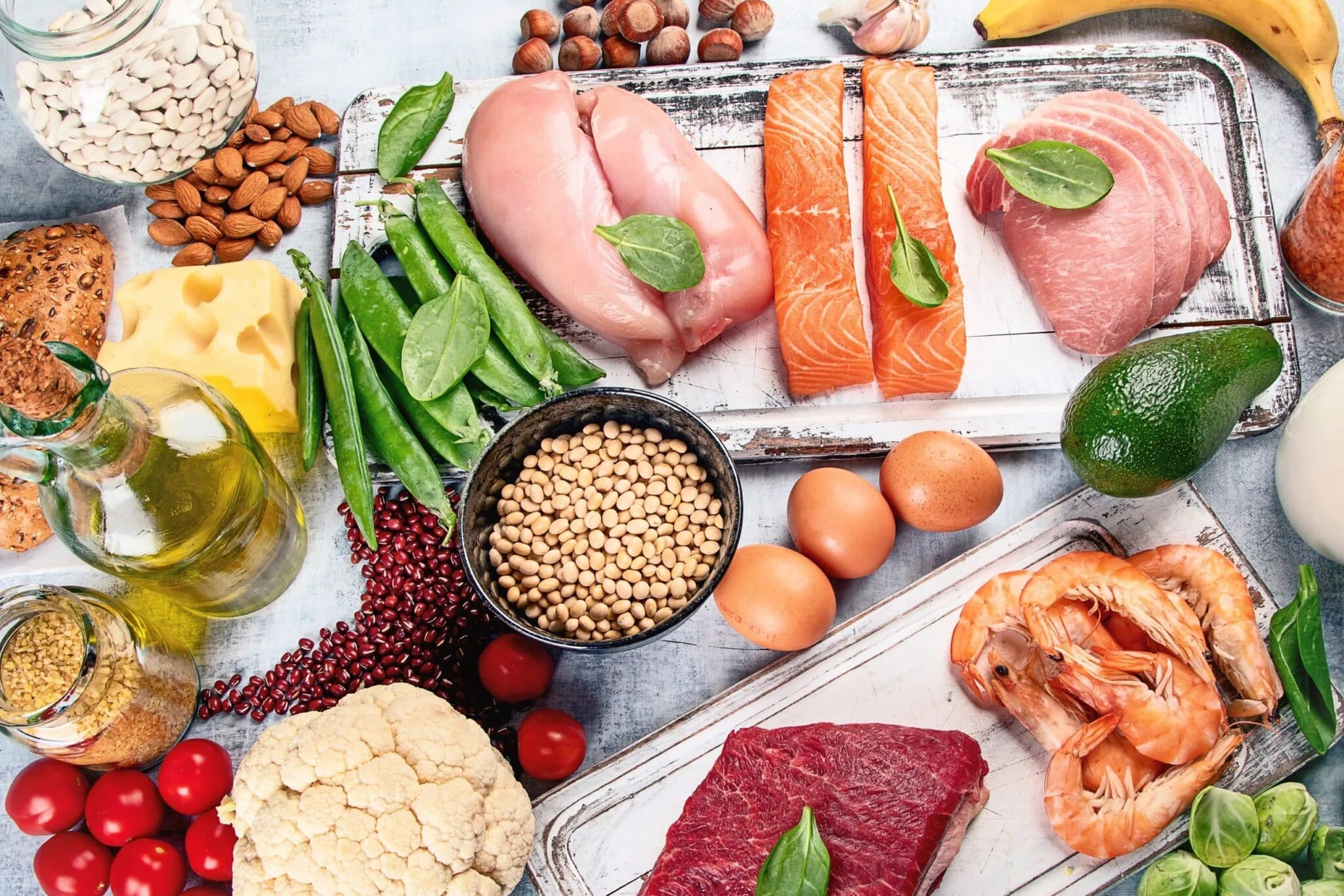
- Should You Train To Muscle Failure Every Set? What You Need To Know - March 4, 2025
- Nutrition in a Hurry: Top Post-Workout Snacks for Active People - February 20, 2025
- 15 Healthy Meal Prep Recipes: Your Weight Loss Made Easy - February 18, 2025
Discover the science behind protein’s role in muscle development and learn key strategies to optimize your gains. From protein-rich meal ideas to effective workout routines, we’ve got you covered. Watch now and embark on your journey to a stronger, more sculpted physique!
In this article, you will learn about the top protein sources for massive muscle growth. The article explains the science behind protein’s role in muscle development and provides strategies to optimize your gains. We also, discuss protein-rich meal ideas and effective workout routines to help you on your muscle-building journey.
The Importance of Protein in Muscle Development
Protein plays a crucial role in muscle development and is a key component for muscle repair and growth. When you engage in resistance training or any form of physical activity that places stress on your muscles, tiny tears occur in the muscle fibers. Protein is necessary to repair these tears, leading to increased muscle size and strength over time.
Protein’s Role in Building and Repairing Muscle
Protein is made up of amino acids, which are the building blocks of muscle tissue. When you consume protein-rich foods, the amino acids are broken down and absorbed by your body. These amino acids are then used to repair and rebuild the damaged muscle fibers, making them stronger and more resilient.
In addition to repairing muscle tissues, protein also promotes the synthesis of new muscle proteins. This process is known as muscle protein synthesis and involves the creation of new muscle fibers. Consuming adequate amounts of protein is essential to maximize muscle protein synthesis, which leads to greater muscle growth.
Protein’s Contribution to Overall Body Function
Protein’s role in muscle development goes beyond just repairing and building muscles. It is also essential for the overall function of your body. Protein is involved in numerous bodily processes, such as hormone production, enzyme production, and immune function.
Hormones are chemical messengers that regulate various bodily functions. Many hormones involved in muscle growth and development, such as growth hormone and testosterone, rely on protein for their production. Adequate protein intake ensures that your body has the building blocks necessary to produce these important hormones.
Enzymes are proteins that catalyze biochemical reactions in the body. They play a crucial role in breaking down nutrients, including proteins themselves, into smaller molecules that can be absorbed and utilized by the body. This process is vital for muscle growth and overall health.
Lastly, the immune system relies on proteins to function properly. Antibodies, which are proteins, are produced by the immune system to fight off infections and diseases. Without sufficient protein intake, your immune system may be compromised, potentially impacting your ability to recover from workouts and maintain optimal muscle growth.
Strategies to Optimize Muscle Gains
To optimize muscle gains, it is essential to implement certain dietary and lifestyle strategies. These strategies will ensure that you are providing your body with enough protein to support muscle growth and taking advantage of the window of opportunity for muscle protein synthesis.
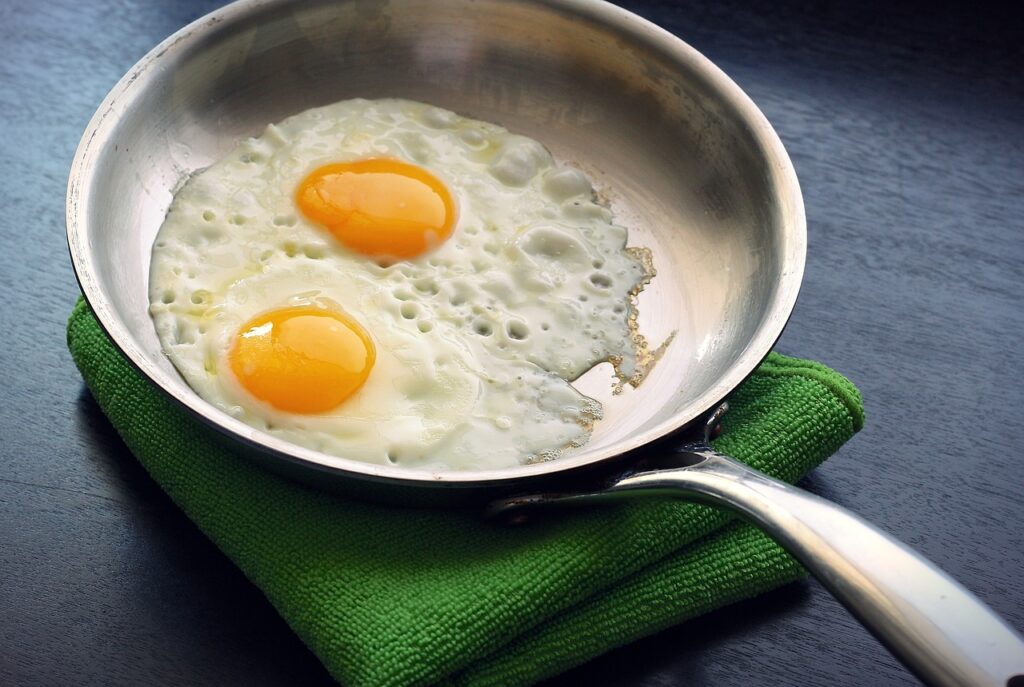
Eating Sufficient Protein
One of the most critical strategies for optimizing muscle gains is consuming sufficient amounts of protein. The recommended daily intake of protein for adults engaged in regular physical activity is around 0.8 to 1 gram per kilogram of body weight. However, if your goal is to build muscle, aiming for a slightly higher protein intake, around 1.2 to 2 grams per kilogram of body weight, may be beneficial.
Good sources of protein include lean meats, poultry, fish, eggs, dairy products, legumes, and plant-based protein sources such as tofu and tempeh. Incorporating a variety of protein-rich foods into your diet will ensure that you are getting a wide range of essential amino acids.
Spreading Protein Intake Throughout the Day
Another strategy to optimize muscle gains is to distribute your protein intake evenly throughout the day. Instead of consuming most of your protein in one large meal, aim to have protein-rich snacks or meals every few hours. This approach ensures a steady supply of amino acids, which can be readily utilized by your body for muscle repair and growth.
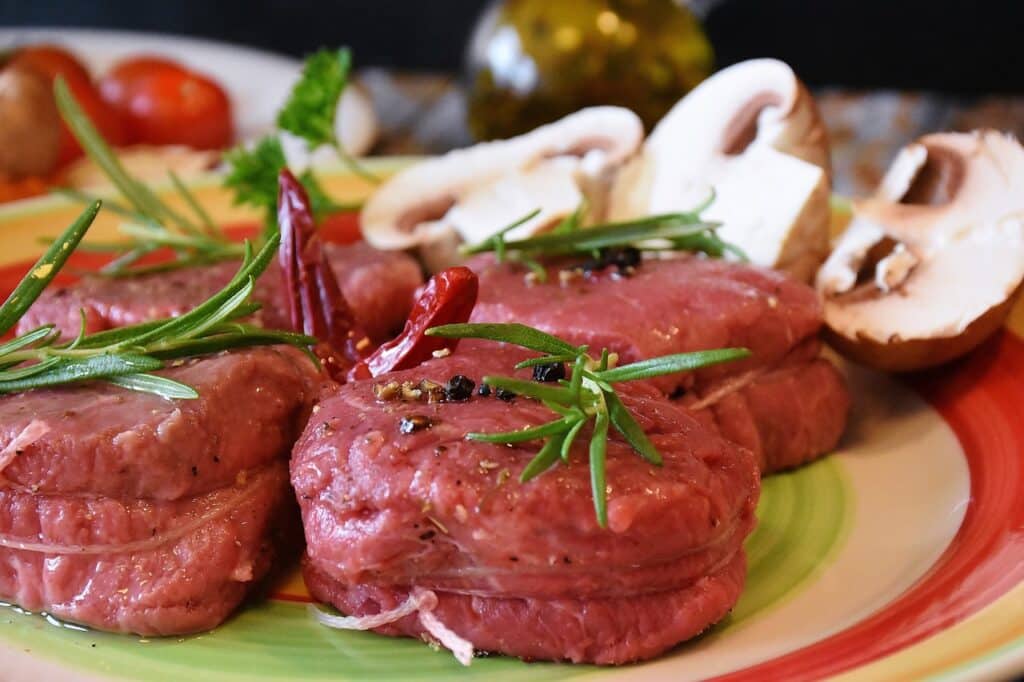
Combining Protein with Carbohydrates for Workouts
Consuming carbohydrates along with protein before and after workouts can enhance muscle gains. Carbohydrates provide energy for intense workouts and help replenish glycogen stores in the muscles post-workout.
When you consume carbohydrates before a workout, it increases insulin levels, which promotes the uptake of amino acids into the muscles. This allows for optimal muscle protein synthesis during and after the workout, leading to greater muscle growth.
Considering Protein Timing Around Workouts
Timing your protein intake around workouts is another effective strategy for optimizing muscle gains. While the overall daily protein intake is crucial, consuming protein within the post-workout window is especially important.
Research suggests that consuming protein within 30 minutes to two hours after a workout can enhance muscle protein synthesis and maximize muscle growth. This window of opportunity is when your muscles are primed to uptake and utilize amino acids most efficiently.
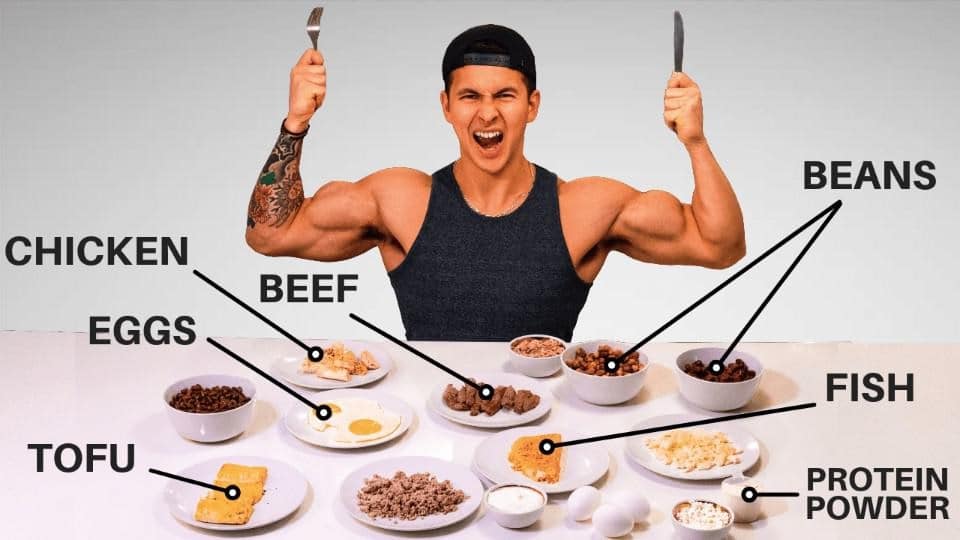
Protein-Rich Meal Ideas
Now that you understand the importance of protein and how to optimize its intake, let’s explore some delicious and protein-packed meal ideas:
Wild Caught Salmon with Quinoa and Steamed Vegetables
Grilled or baked wild-caught salmon provides an excellent source of high-quality protein and omega-3 fatty acids. Pair it with quinoa, a protein-rich grain, and a side of steamed vegetables for a well-rounded and nutritious meal.
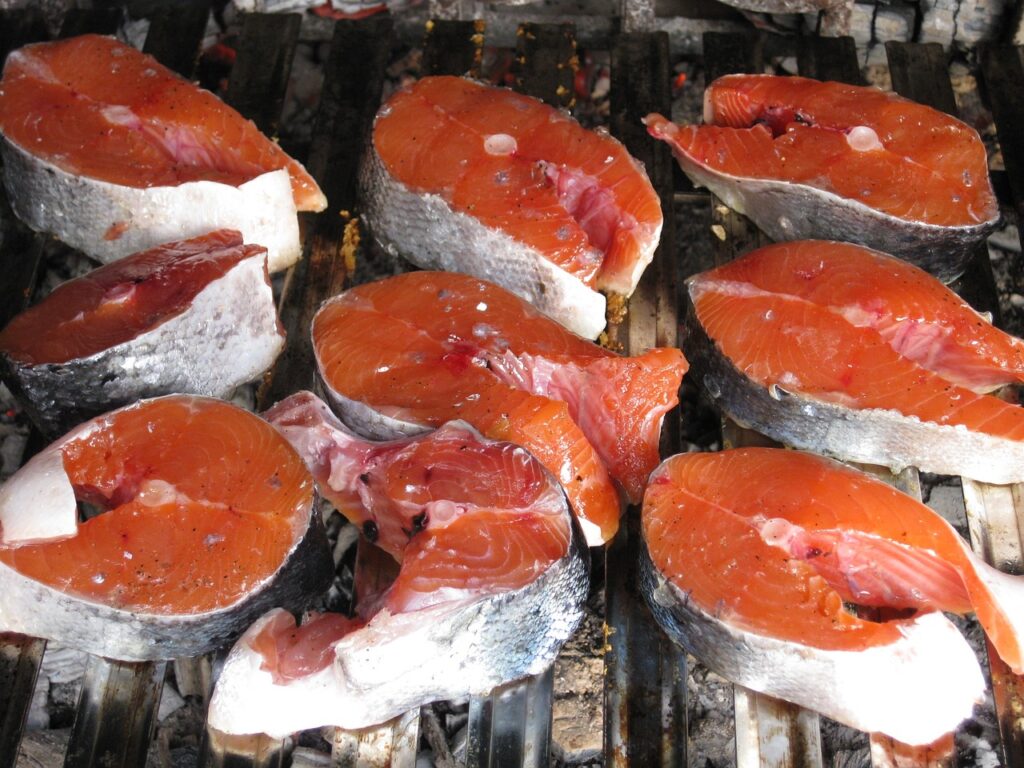
Grass-Fed Beef Stir-Fry with Brown Rice
Grass-fed beef is not only a great source of protein but also contains higher levels of heart-healthy omega-3 fatty acids compared to conventionally raised beef. Stir-fry strips of grass-fed beef with a variety of colorful vegetables and serve it over brown rice for a protein-packed and fiber-rich meal.
Wild Game Chili
For those looking to venture into more exotic protein sources, wild game meats such as venison or bison make excellent choices. Prepare a hearty wild game chili with tomatoes, beans, and spices for a high-protein and flavorful meal.
Organic Egg Omelet with Spinach and Avocado
Eggs are a fantastic source of complete protein and can be easily incorporated into any meal. Whip up an organic egg omelet with a generous amount of leafy spinach and avocado for a protein-rich breakfast or lunch option.
Grilled Lean White Fish Tacos with Salsa
White fish such as cod or halibut is low in fat and packed with high-quality protein. Grill or bake white fish fillets and serve them in whole-grain tortillas with fresh salsa and a squeeze of lime for a protein-rich and satisfying meal.
Free-Range Poultry Salad with Mixed Greens
Free-range poultry, such as chicken or turkey, provides lean protein along with essential vitamins and minerals. Combine grilled or roasted chicken or turkey breast with a variety of mixed greens, vegetables, and a light dressing for a protein-packed and refreshing salad.
Protein-Packed Mollusk Pasta
Mussels, clams, and other mollusks are often overlooked as protein sources. Prepare a delicious pasta dish by sautéing mollusks with garlic, olive oil, and your choice of herbs. Toss it with whole-grain pasta for a protein-rich and flavorful meal.
Vegan Lentil Curry with Brown Rice
For plant-based protein options, lentils are an excellent choice. Cook up a flavorful vegan lentil curry with a blend of aromatic spices, and vegetables, and serve it with brown rice. This meal provides a complete protein source while being rich in fiber and various vitamins and minerals.
Effective Workout Routines for Muscle Growth
To complement your protein-rich diet and optimize muscle growth, incorporating effective workout routines is essential. Here are some key strategies for maximizing your muscle gains:
Resistance Training for Hypertrophy
Resistance training, specifically targeting hypertrophy (muscle growth), should be a central component of your workout routine. Focus on compound exercises such as squats, deadlifts, bench presses, and shoulder presses, as these movements engage multiple muscle groups simultaneously, leading to greater muscle activation and growth.
Compound Exercises
Compound exercises involve movements that utilize multiple joints and muscle groups. These exercises not only stimulate greater muscle growth but also improve overall strength and coordination. Incorporate exercises like lunges, pull-ups, rows, and overhead presses to enhance muscle gains.
Progressive Overload
Progressive overload is a fundamental principle for muscle growth. Continually challenging your muscles by gradually increasing the intensity, weight, or repetitions of your workouts ensures that your muscles adapt and grow stronger over time. Keep track of your progress and incrementally increase the workload to promote ongoing muscle growth.
Rest and Recovery
Adequate rest and recovery are crucial for optimal muscle growth. It is during periods of rest that your muscles repair and rebuild, leading to greater growth and adaptation. Make sure to schedule regular rest days, get enough sleep, and incorporate techniques like stretching and foam rolling to promote optimal recovery.
Conclusion
Optimizing muscle growth requires a combination of proper nutrition and effective workout routines. Protein plays a vital role in muscle development, as it repairs and builds muscle tissue while contributing to overall body function. By implementing strategies like consuming sufficient protein, spreading protein intake throughout the day, combining protein with carbohydrates for workouts, and considering protein timing around workouts, you can maximize your muscle gains.
Additionally, incorporating protein-rich meals into your diet, such as wild-caught salmon with quinoa and steamed vegetables or a vegan lentil curry with brown rice, ensures that you are fueling your body with the necessary nutrients for muscle growth.
Pairing your protein intake with effective workout routines, such as resistance training for hypertrophy, compound exercises, progressive overload, and prioritizing rest and recovery, will further optimize your muscle gains.
Remember to consult with a healthcare professional or registered dietitian before making any significant changes to your diet or exercise routine, especially if you have any underlying health conditions. With the right food choices and a well-designed workout program, you can achieve your muscle growth goals and experience the benefits of a strong and healthy body.
Table of Contents
